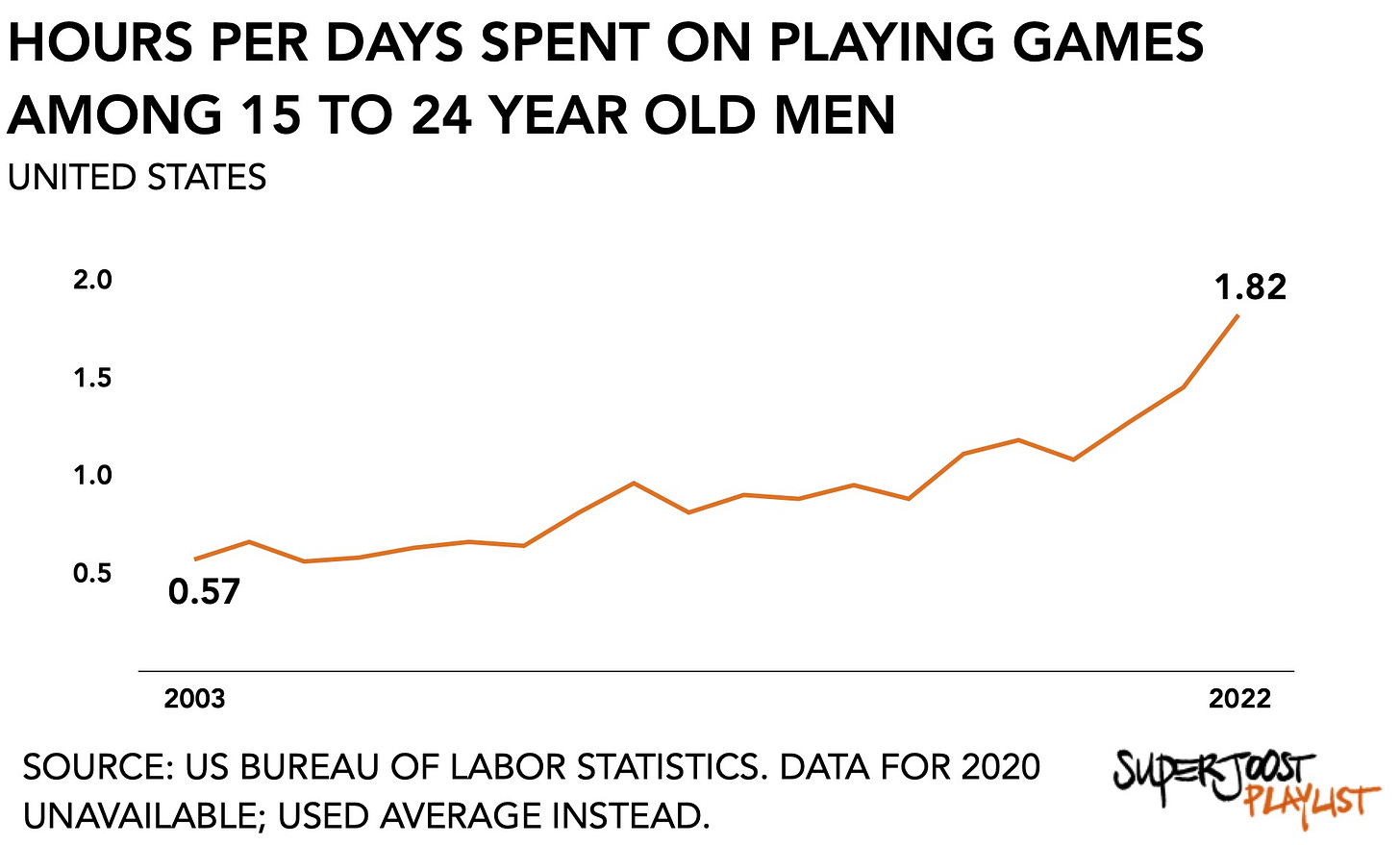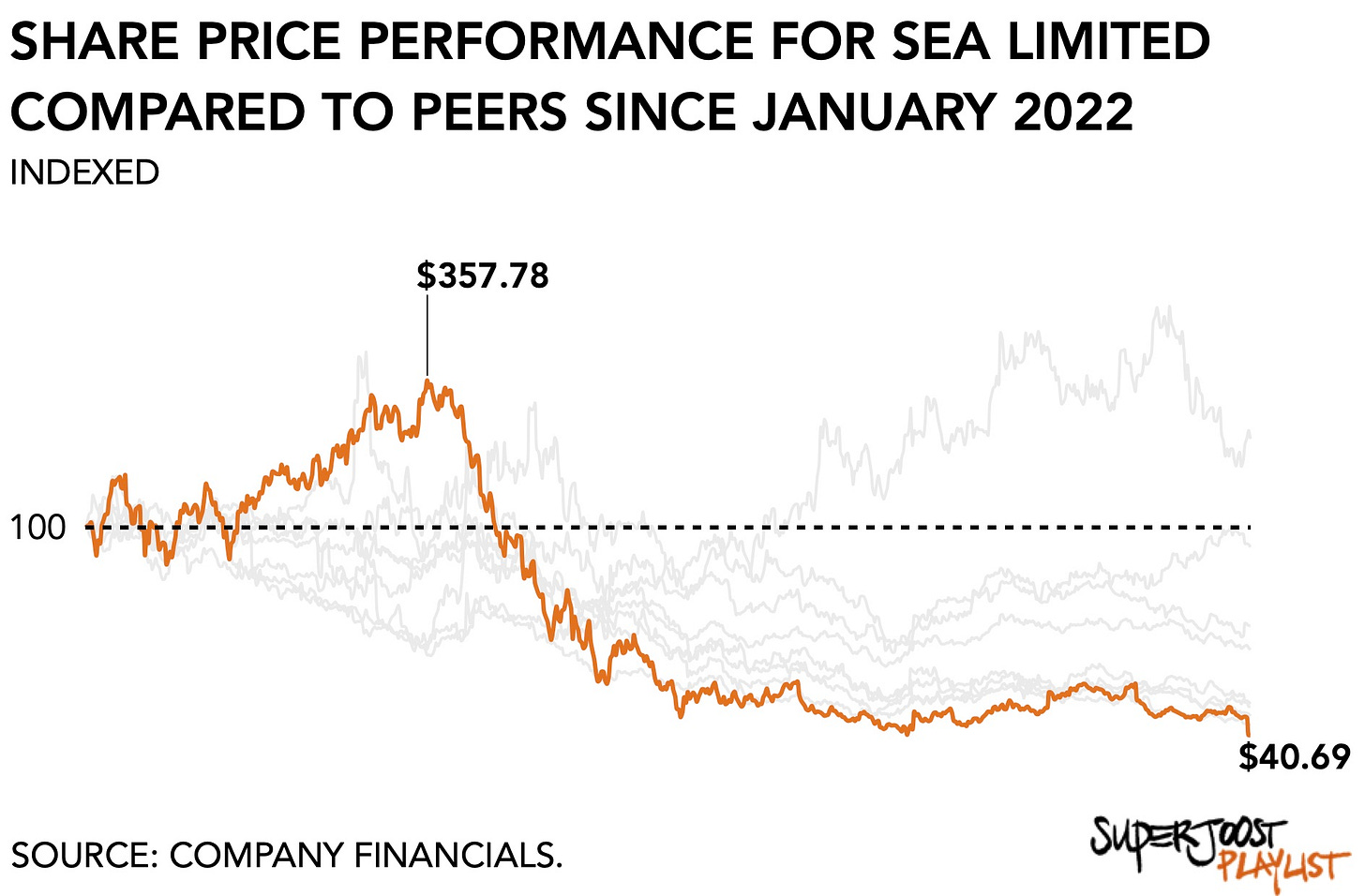The SuperJoost Playlist is a weekly take on gaming, tech, and entertainment by business professor and author, Joost van Dreunen.
Does the announcement that Take-Two subsidiary publishing label Zynga is releasing a Web3 title, Sugartown, mean the novel technology is going to be a real platform soon?
During a week when the slow, artisanal craft of Baldur’s Gate 3 reigns supreme by every metric (e.g., on Steam it peaked at 875,343 concurrent users), the notion that the new thing is here and going to replace everything seems moot. Still, many devs would rather be caught cheating at their own game than commit themselves to what they believe to be a scammy, seedy technology.
But here’s a few counter-arguments.
For one, the list of legacy game makers dipping their toe in crypto (see what I did there?) is growing. Zynga is merely the latest to admit to it. Others are GREE (via its subsidiary BLRB), Bandai Namco, Com2Us, Square Enix, Scopely, Ubisoft, Nexon, and CCP Games. Beyond game makers, platforms like Google are warming up to the idea as well, as long as blockchain-based game makers keep everything about the sheets.
[BTW, in compiling this shortlist, it is indeed remarkable that the top-ranking search results contain so few traditional game reporters or sites, with the exception of taking a dump on it, like Kotaku, which writes “Of all the hills to die on, Square Enix chose non-fungible tokens.” My guess is the trade press is silencing the category to death to not lose their cool standing with game devs.]
Second, at a recent Web3 conference, Japan’s Prime Minister, Fumio Kishida, outlined his view on emerging tech as “part of the new form of capitalism." That’s a healthy endorsement. More significant, however, was Kishida’s comment that
“a major Japanese company will announce an ambitious large-scale project that will create a valuable economic zone in the metaverse."
Is it Nintendo? Meh, unlikely. Nintendo is never the first kid in the pool. Or Sony, perhaps? It did file patents for digital collectibles recently. The implication is that Asian developers are more open to exploring Web3 gaming and have the support of governments and, potentially, platforms. There certainly seems to be an increasingly warmer embrace of the technology by regulators worldwide.
Personally, I think a growing crew of legacy game makers experimenting with emerging technology will have better results than all of us first having to suffer through several years of opportunistic first-movers. The continued rejection of blockchain technology by devs is starting to make them seem tone-deaf, especially in the context of
growing strikes in entertainment industries as creatives aren’t receiving their fair share of residuals and royalties, and
the inevitability of needing some type of authentication to navigate the imminent deluge of content as a result of the combination of publishers pushing into user-generated content and the rapid popularisation of generative AI.
Is Sugartown going to make everything right? Unlikely. Although Zynga did pioneer social gaming long before it was cool, its current DNA is unlikely that of a nimble startup. Instead, Zynga brings the weight and credibility of a $12 billion gorilla. That should count for something.
On to this week’s update.
BIG READ: Hooked on addiction
A graph similar to the one below recently made the rounds. It shows the increase in time young men between 15 and 24 years old spend playing games from 2003 to 2022.
In its wake were a host of commentaries and observations around video game addiction. Specifically, as young men are becoming more isolated, there is a growing amount of worry about the increase in time spent playing.
A few comments.
First, a single line like this is a bit deceiving since it only shows playing. Watching TV, a behavior that was a source of concern in the previous generation has remained steady at no fewer than three hours a day. From the same data set, we also learn that this group also socializes much less and spends less time playing sports. Given the widespread diffusion of technology should it come as a surprise that a growing number of people is socializing online instead?
Second, the U.S. Bureau of Labor Statistics (the source of the data), maintains a notable definition that includes “yard games like croquet or horseshoes, as well as activities like billiards and dancing.” It goes well beyond video games, of course, although it is unlikely that we’re looking at a spike in young men playing horseshoes. (Also, what kind of cowboy crap is that?)
I have no reason to doubt the chart (since I looked up the original source), and I’ve written before about the growing concern worldwide about a dejected generation kindly thanking society for the lack of opportunity and opting out by refusing to have children or a career. This week China officially stopped reporting the unemployment rate among young people because it is record-breaking. In June, 21.3 percent of people aged 16 to 24 years old in China were unemployed.
It feeds into an increasingly popular narrative: games are addictive and children are increasingly helpless at regulating their behavior. Naturally, as interactive entertainment has become more widespread, we can expect there to be more critical perspectives. Much of the concern raised around video games and anti-social and violent behavior has ebbed. But in its place, we now find novel anxieties around addiction, loot boxes, and extremism.
The concern goes to those most vulnerable. One of those is people diagnosed with Attention Deficit Hyperactivity Disorder, or ADHD. It is the most frequent neuro-developmental disorder related to “impulsivity, attention difficulties and emotional dysregulation,” and occurs in 5 percent of children and adolescents worldwide.
Research published in April this year explores the correlation between a condition like ADHD and what psychologists call “internet gaming disorder.” It found that one in four of its research subjects with ADHD displayed the disorder. Kids with the disorder generally started playing at a younger age and showed “a more abusive pattern of use of video games” compared to their peers without. They also played roughly twice as much on schooldays (0.86 hours versus 1.57, respectively) and on weekends (2.04 versus 5.25). And far higher than shown above.
I’m no video game apologist. Both as a parent, and as someone who’s dedicated their career to interactive entertainment, I believe it is an obvious responsibility to ask critical questions and, for lack of a more elegant expression, eat my own dog food.
It’s why I also have to raise the observation that moral panics about novel technologies are demonstrably cyclical. Over time, researchers have concluded that listening to the radio causes anxiety, reading comic books caused childhood maladjustment, video games cause aggression, and smartphones and social media cause depression. And despite the best of intentions, I don’t recall the implementation of any material changes to mitigate these negative effects.
Instead, following a moral panic and a deep belief that new technology is all-encompassing, a flurry of research emerges, only to be largely ignored as we move on to the next terrifying thing.
That’s a whole different level of addiction.
MONEY, MONEY, NUMBERS
Sea Limited misses estimates, stock drops -30 percent
The Singapore-based tech giant behind Garena reported a +5 percent increase in top-line Q2 revenues, from $2.9 billion to $3.1 billion. Its games division, however, suffered. According to its 6-K filing, revenues for digital entertainment dropped from $900 million to $529 million, down -41 percent q/q. Its games group distributes both its own games, Free Fire, and third-party titles (e.g., League of Legends, Heroes of Newerth, and FIFA Online 3) across South East Asia.
Its player base continues to expand but average spending is in decline. Despite growing its active user base by +11 percent and increasing the total number of paying users to 43 million, up +15 percent y/y, average bookings per user were $0.80 compared to $0.90 in the previous quarter.
In December, Sea had already announced a salary freeze and bonus cuts in preparation for a tougher year ahead. The pandemic spurred the firm’s growth to $3.2 billion in bookings in 2020, up +80 percent y/y, driven largely by the success of Free Fire. As one of the largest publishers in Asia, Sea’s difficulties suggests a weakening of overall consumer demand and slowing economic activity in the region. Worse, its decline is notably steeper than that of many of its peers, including Com2Us, Krafton, NCSoft, Neowiz, NetEase, NetMarble, and Nexon.
Both Barclays and Citigroup subsequently cut their price targets by a third.
PLAY/PASS
Play. Fortunately, after suffering through a relentless barrage of “gang gang, ice cream so good,” we now have Nicki Minaj’s voice-over for Call of Duty Warzone and Modern Warfare 2 to look forward to.
Pass. Discord got h4x0red. Do the kids still say that? Either way, it sux0red.








Considering how many GaaS games actively encourage compulsive behaviour (and some go as far as pushing seasonal content as necessary to keep up with the Joneses), I'm not convinced that concerns about gaming addiction is just another moral panic. I know too many gamers who spend hours on these titles as a form of excessive escapism. I get getting into a game. But this feels different. These are not games in the classic sense. They are more like slot machines.